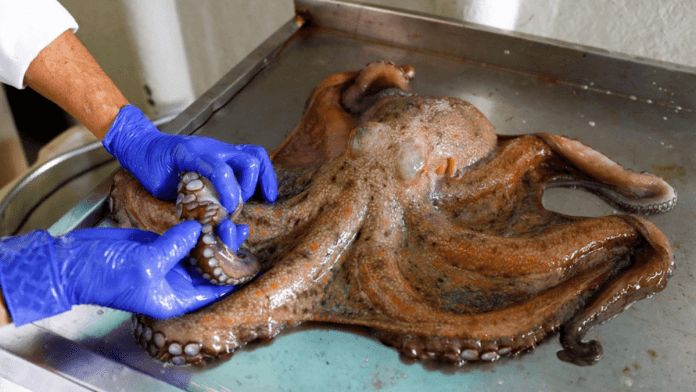News in Brief:
– The Canary Islands government halts plans for the EU’s first octopus farm due to concerns over its environmental impact.
– Environmental NGOs criticise the project, citing potential harm to marine life and local ecosystems, while the company defends its sustainability efforts amidst ongoing scrutiny.
The Canary Islands government has pressed pause on plans for the European Union’s inaugural octopus farming project, citing potential environmental repercussions.
Initially slated for construction this year, the octopus farm proposal in the Canary Islands is now under probe for its potential adverse effects on the local ecosystem.
The government, in a recently released report, has raised red flags, emphasising the necessity for in-depth environmental impact assessments. This move extends an ongoing controversy spanning over two years.
Environmental organisations have also rallied against the project as they highlight concerns about its impact on both the marine environment and local farmers. For example, overcrowding in the proposed tanks could lead to increased aggression and even cannibalism among the cephalopods.
75 non-governmental organisations (NGO), experts, and public figures have petitioned the government to abandon the project, citing potential animal cruelty, environmental degradation, and adverse effects on tourism.
The government’s decision follows a review of the environmental impact report submitted by Nueva Pescanova, the company spearheading the octopus farm initiative. While the company touts sustainable practices and lower mortality rates, authorities remain unconvinced, insisting on additional studies. Recommendations include a comprehensive assessment of the farm’s impact on local wildlife and a detailed plan for sustainable resource management.
Groups like Compassion in World Farming and Eurogroup for Animals have criticised the company’s environmental report as insufficient, alleging a lack of essential information for a thorough evaluation. They urge an immediate halt to the project and call on the European Commission to consider banning octopus farming in its forthcoming animal welfare legislation.
Nueva Pescanova has defended its commitment to sustainability, emphasising its alignment with the United Nations’s Agenda 2030 and its recognition as a sustainable industry contributor. However, critics remain unconvinced, calling for greater transparency and accountability. While the project has garnered support from research centers, others remain cautious, echoing concerns about its potential ecological impact.



